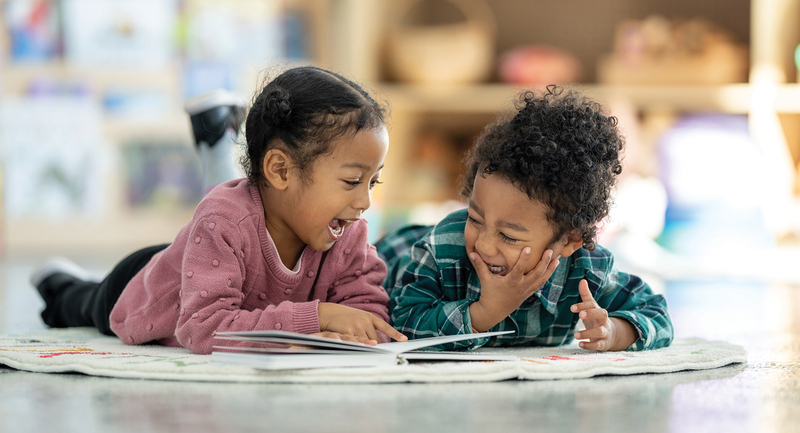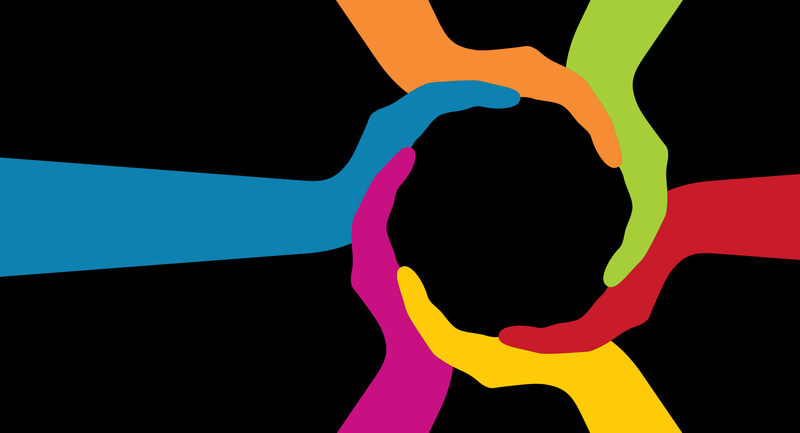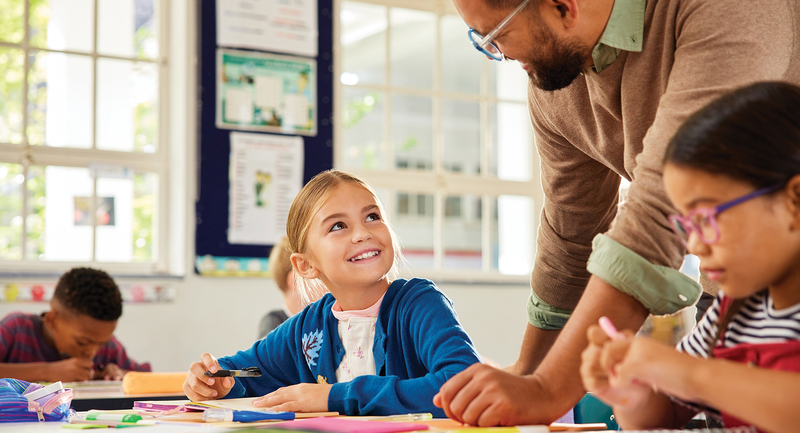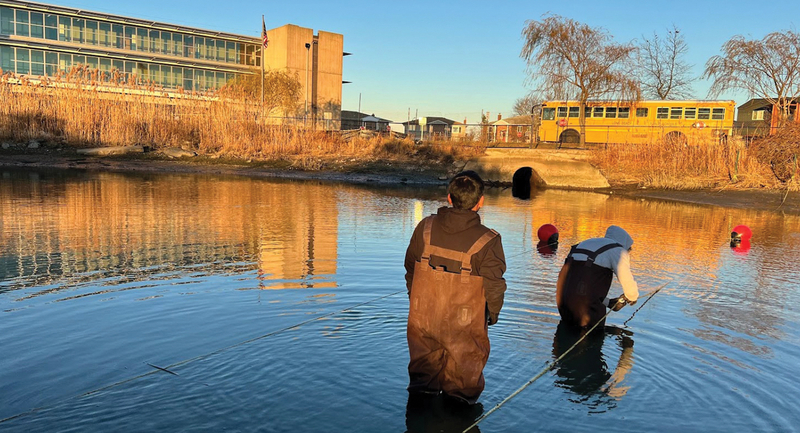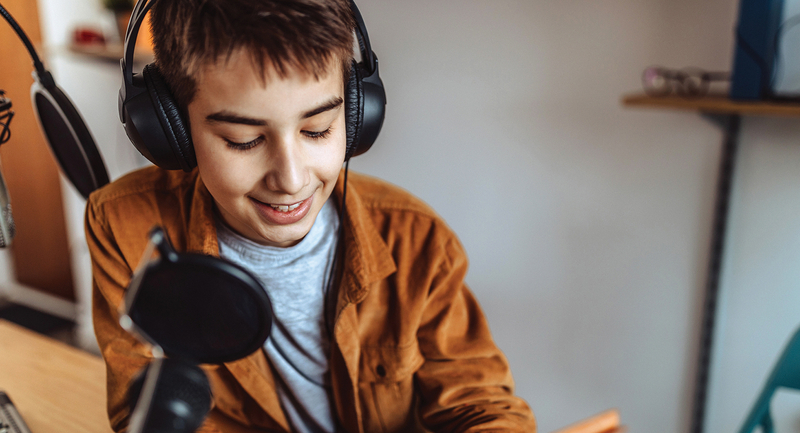"We ask for things every day and don't realize it," says Bianca Laureano, director of education at Scenarios USA, a nonprofit that uses writing and film to engage young people in issues of social justice, identity, and health. Would you like fries with that? Is it OK if I sit here? Even when students raise their hands to speak, that action requires one person to seek consent from another. "Consent is in everything we do," she continues.
Consent is a life skill, but it's nonconsent that makes headlines—from the Daniel Holtzclaw and Brock Turner trials, to policies like stop-and-frisk, and even to the day-to-day violations people face taking public transportation. Recent media attention has focused on the high rates of sexual assault on college campuses. A 2015 study by the Association of American Universities reports that among undergraduate students, 23 percent of females and 5 percent of males experience rape or sexual assault through physical force, violence, or incapacitation. In response, colleges and some states have adopted affirmative consent policies (requiring a clear, unequivocal yes) for sexual conduct, and college freshman are receiving more education about defining consent.
But if youth need an understanding of consent to live healthy, self-determined lives, and help prevent sexual assault, why save the conversation for college? Some K–12 schools aren't waiting.
Rated E for Everyone
Consent is a new topic in Virginia's Fairfax County Public Schools, says Elizabeth Payne, the district's coordinator of health, physical, and family life education. Students in 10th and 11th grade discuss it as part of the health curriculum, while 12th graders study the legal aspects of consent in their government classes. Prior to its 2016 implementation, the curriculum went through a vetting process that included an advisory committee made up of school board appointees, clergy, nurses, teachers, administrators, and two students. As an added layer of transparency, all lessons are posted online for families to access.
Although any new curriculum gets careful consideration before adoption, the topic of consent seems to set off two concerns—that talking about consent will make young people more likely to have sex and that talking about assault will be upsetting.
Ettie Bailey-King of the U.K.-based Schools Consent Project is quick to reassure parents. "Talking about consent doesn't make kids any more likely to have sex or be abused, just like tetanus shots don't encourage people to play with rusty nails," she says.
In reality, Bailey-King adds, research shows that robust sex education actually makes students more likely to delay sexual activity. And a 2012 study by the Guttmacher Institute found that teens who received formal sex education prior to their first sexual experience demonstrated healthier behaviors than those who received no sex education.
"There's a concern that consent curriculum is about teaching kids how to say yes to sex," says Deborah DeFranco, supervisor of health and physical education in Arlington Public Schools in Virginia. "Really, it's part of a broader conversation on decision making."
Parents and educators can introduce consent to students by approaching it philosophically, advises Rachel Brian. A former math and science teacher, Brian founded Blue Seat Studios, a film company that uses humor to explain big concepts.
The company offers a range of short, animated videos on consent that are scaled to different audiences. Younger children can learn about the concept of bodily autonomy, while older students get a more philosophical take that uses tea as a metaphor. When you offer someone a cup of tea, the video explains, they can say yes, say no, or say yes and then later change their mind to no. Just as you would never force someone to drink tea they don't want, you wouldn't force someone to have sex. And if the person is too incapacitated to answer your question or even drink, put down the tea and make sure they are OK! Blue Seat's now viral Tea Consent (clean version) video has been translated into dozens of languages and is being used in settings from police departments to classrooms.
Time, Training, and Taboo
By altering complexity, language, and instructional methods, consent is an accessible topic that can be taught in any setting—even with young students and in religious schools. The Schools Consent Project (SCP) is a network of lawyers who volunteer their time to go into schools and deliver workshops on local laws regarding consent and sexual assault. "In Islamic and Catholic schools, I'll make all the scenarios nonsexual," says Bailey-King. "For example, you're at a family party and your mum tells you to kiss your uncle on the cheek, but you hate your uncle—what do you do?"
Students of any age can work on value clarification using "I feel statements," says Lori Reichel, assistant professor of health education at the University of Wisconsin-La Crosse. Statements like, "I feel happy/scared/safe when …" help students check in with their emotional state in different settings, and better decide what they do or don't like, Reichel explains.
Rather than worrying about starting too young with consent curriculum, some educators worry they are starting too late. "By 15–17, kids have already gotten a lot of bad messages about consent," says Bailey-King.
Reichel notes that limited instructional time and training for general educators, along with cultural taboos, are the main reasons consent isn't taught earlier. "The assumption is that health class for young students is just nutrition and phys. ed," she says. "Really, it needs to be mental, emotional, physical, social, and spiritual."
The Real Deal
Although advocates press for consent education before college, it is still a rare and emerging phenomenon at the high school level. In the U.K., there is no compulsory sex ed. In the U.S., many states take a limited approach to sex ed, with about half of the states mandating some sort of sexual assault education. Only California mandates consent education in all public schools. Despite this hedging, the inconvenient truth remains that the college assault epidemic has its antecedent in the lower grades. A 2001 article in the Journal of American Medicine claims that approximately 1 in 5 female high school students report being physically and/or sexually abused by a dating partner.
"Our generation, and the generation before us—we just never had that consent talk," Laureano notes. Responding to the urgent need to train educators to have authentic conversations with youth about consent, Laureano collaborated with students to develop an inquiry-based curriculum about healthy relationships. "What's the REAL DEAL about Love and Solidarity?" is currently in use in NYC and Cleveland public schools.
The REAL DEAL curriculum is rooted in self-determination and the belief that no one's sexual desire trumps another person's human rights. That's evident in the writing prompt that kicks off the lessons on consent: "When was the last time something happened without my consent? How did I feel emotionally and physically? What was the situation and what are things I can say or do, next time, to keep my power?"
Next, the discussion turns to defining consent according to the legal definitions in the state where the curriculum is taught. Students watch the teen-written movie Veracity and rewrite a party scene featuring a nonconsensual kiss. In other scenarios, consent is woven into topics like gossip or whether having the passcode to your boyfriend's phone gives you the right to look at it.
"There's a lot of gray area that young people find themselves in, where consent needs to be deconstructed in a way that they can figure out—is this what I want?," says Laureano. For example, Bailey-King says students have a lot of questions about consent when alcohol or drugs are involved. The classroom is a great place to talk through these what-ifs, she contends.
"If students know what consent is and what it looks like when they're 14 years old, sober, and in a classroom, our hope is that they'll be safer when they're in their first week of college," Bailey-King explains.
Skilled Communication
Reichel says these approaches to consent education illustrate a shift in health education away from content-based instruction and toward a skills base. "Kids tell us, they don't want to hear scare tactics about pregnancy and STDs," says Reichel. "They want to be able to define and identify consent, make good decisions, treat people with dignity and respect, know how to find adults they can talk to, and be able to connect to their emotions in different situations."
The REAL DEAL consent curriculum has several activities that address the underlying communication and decision-making skills. In one exercise, students stand in a circle with one person in the middle who has to find someone to take his or her position. No one is allowed to talk, so everyone has to very clearly use nonverbal cues to indicate yes or no. "It's interesting to watch," says Laureano, "because most people don't realize how they act when they say 'no'. They tense up, their shoulders are up by their ears, they seem really unsure of themselves." She says this activity lets youth practice saying no while learning how their body language could help reinforce boundaries.
In another movement-based activity, students are presented with scenarios and then hold up red, green, or yellow cards to say whether they think consent was given, wasn't given, or they're unsure. It starts the conversation about how different people perceive consent and allows educators to weave in legal definitions.
And what if you're on the receiving end of a "no?" Laureano notes that dealing with rejection is a subset skill of honoring consent. She encourages youth to think through their own self-talk when they are rejected, being mindful of the tendency to rationalize in ways that degrade themselves or others (e.g., "I'm not good enough" or "He's stupid"). "If we constantly support negative talk about rejection, then that's not really valuing consent," she adds.
Unpacking the processes and skills inherent in feeling good about yourself and your decisions is part of the Arlington Public Schools' focus on cultivating healthy relationships, says DeFranco. "We're committed to looking at the whole child, so consent education has to be approached holistically. It's not just one act or one thought; it's communicating how you respect yourself and others, and what kind of community you want to be a part of."
Empathy Speaks Up
Where consent education takes hold, educators should expect cultural shifts, says Bailey-King. Students may begin to question gender norms and consider different perspectives in relation to the content they're studying. "You might be reading Shakespeare and have more discussion on how women's choices were not very free at that time," she offers.
"At its best," says Bailey-King, "consent education opens up empathy and gets students thinking about life experiences they haven't personally had." She admits that might sound like a leap, but insists it can happen. "By the end of a lesson, I've noticed students asking questions from the perspective of a rape survivor, or boys will ask, 'What can I do on a date to show a girl I'm not going to try to force her into anything she doesn't want to do?'"
In Arlington, teachers partner with educators and assault survivors from the national nonprofit, PAVE (Promoting Awareness, Victim Empowerment), and their outreach has extended beyond the classroom, giving clubs and athletic teams the tools to be good bystanders, intervene, and confront stereotypes.
"It's pretty potent when students realize they can be part of the solution," says DeFranco. "If you know something's going on, you have avoice to stop it. Being able to see through other lenses is an important part of that. You may not be the victim, you may not be the
perpetrator, but you need to know how to speak up."
perpetrator, but you need to know how to speak up."




